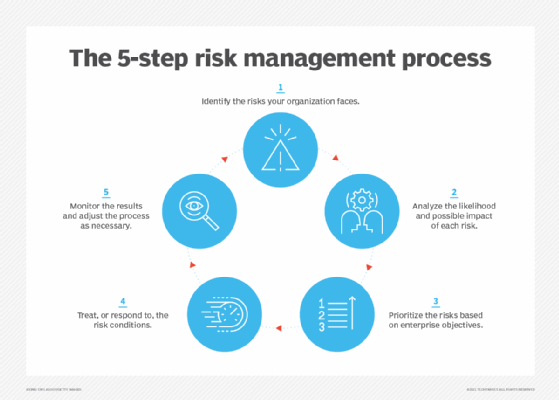The Effect of the Importance of Risk Management on Corporate Governance
The Important Value of Risk Management in Getting Organizational Objectives
This is where Risk Management steps in, supplying an organized approach to identifying, evaluating, and mitigating prospective barricades to advance. As we explore the vital duty of Risk Management in achieving organizational goals, one can not wonder but assist: just how does this convert right into real-world success?
Recognizing the Principle of Risk Management in Business

The Essential Role of Risk Management in Strategic Preparation
Integrating Risk Management into tactical planning functions as a secure for organizations, securing their long-term strategies with a solid foundation of preparedness and durability. It runs as the company's radar, spotting possible hazards and vulnerabilities that could interfere with the path towards attaining their mentioned goals. Risk Management offers a structure for anticipating uncertainties and developing ideal responses, making certain the company's survival and success also in the face of adversity. By integrating Risk Management right into strategic planning, companies can transform these unpredictabilities into chances for development and innovation. This calculated interweaving of Risk Management cultivates flexibility, making organizations more robust and enabling them to browse the ever-changing organization landscape confidently. As a result, Risk Management comes to be a vital device in strategic planning, critical in protecting sustainable success.

Techniques for Identifying, Assessing, and Focusing On Threats
Navigating the complex landscape of threats needs the application of particular techniques for their prioritization, identification, and analysis. The process begins with Risk identification, employing devices such as SWOT evaluation, which aids in determining prospective threats and possibilities. Next, Risk evaluation is performed to determine the prospective influence and probability of each Risk. Tools such as Risk matrices and impact-probability find more graphes are used for this. Finally, dangers are prioritized based on their potential effect and possibility, allowing companies to focus their sources on critical dangers. This organized technique guarantees a detailed understanding of the Risk landscape, allowing companies to make enlightened decisions and efficiently handle threats to accomplish their goals - importance of risk management.
Safeguarding Organizational Procedures Via Efficient Risk Management
In the business landscape laden with uncertainties, efficient Risk Management plays an essential role in guarding organizational procedures. By determining and analyzing prospective hazards, Risk Management makes it possible for organizations to develop durable contingency strategies. Companies must spend in thorough Risk Management strategies to safeguard their operations.

Converting Potential Dangers to Opportunities: The Power of Risk Management
While possible dangers could initially look like roadblocks to business success, reliable Risk Management can transform them right into opportunities. A positive strategy to run the risk of Management includes recognizing, assessing, and prioritizing dangers to design strategies that transform them right into potential benefits. This process requires the growth of a risk-aware society within the company, urging individuals to see threats as potential catalysts for modification and growth, instead than plain threats. importance of risk management. Through this lens, prospective dangers come to be possibilities to introduce, enhance processes, and enhance strength. Hence, by leveraging the power of Risk Management, companies can not only protect their operations however likewise spur index growth and accomplish their objectives in an unforeseeable service setting.
Instance Researches: Success Stories of Risk Management Driving Organization Objectives
Effective application of Risk Management methods has generated remarkable outcomes in various businesses, underscoring the advantages of this technique. International companies like Microsoft and Google, for instance, have leveraged Risk Management to decrease risks and make use of opportunities, driving their organization goals onward. These instances highlight just how effective Risk Management can not only guide organizations clear of prospective challenges however also lead them towards their critical goals.
Conclusion
In verdict, Risk Management is fundamentally important in accomplishing organizational goals. click this site It offers a methodical approach to identifying, assessing, and resolving possible hazards and opportunities. Even more than simply mitigating dangers, it additionally cultivates technology, resilience, and sustainable development. By including Risk Management into tactical preparation, companies can much better browse unpredictabilities, guard procedures, and capitalise on opportunities, consequently aligning with long-lasting objectives.
At its core, Risk Management is the process of determining, examining, and addressing potential risks that might adversely affect a company's goals or procedures. Next off, Risk assessment is conducted to ascertain the possible impact and probability of each Risk. Threats are focused on based on their prospective influence and likelihood, enabling companies to concentrate their resources on critical dangers. By identifying and evaluating possible dangers, Risk Management enables organizations to develop durable contingency plans. A proactive strategy to run the risk of Management involves identifying, evaluating, and prioritizing dangers to create techniques that turn them into potential advantages.